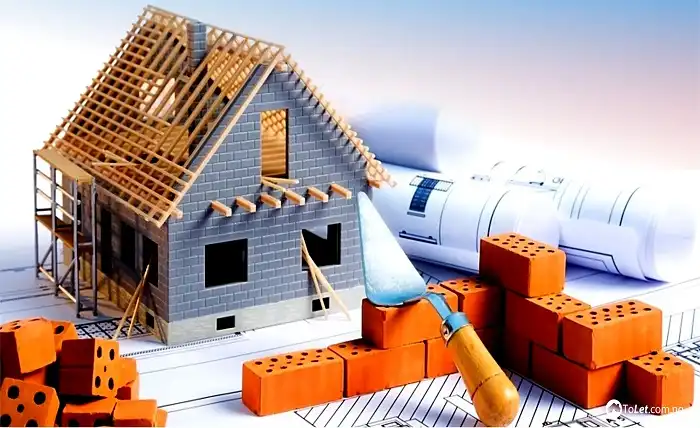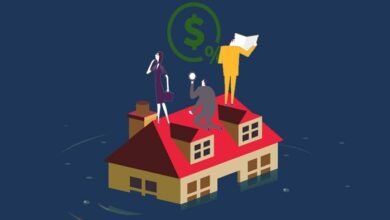What is a Real Estate Developer and How to Become One?

A real estate developer is a person or a company that plans, designs, builds, and sells properties, such as houses, apartments, offices, hotels, or malls. A real estate developer can create new properties from scratch, or renovate existing properties to improve their value and appeal. A real estate developer can also manage and operate properties that they own or lease.
A real estate developer can be a rewarding and lucrative career, as it can generate income, appreciation, and satisfaction. However, becoming a real estate developer can also be a challenging and risky process, as it requires capital, skills, knowledge, and experience.
If you are interested in becoming a real estate developer in 2023, you need to follow the steps and tips below.
Step 1: Get Educated and Licensed
The first step of becoming a real estate developer is to get educated and licensed in the field of real estate. You need to learn the fundamentals and principles of real estate, such as law, finance, marketing, design, construction, and management. You also need to obtain a license or a certification that allows you to practice real estate in your state or jurisdiction.
Some of the options that you can pursue are:
- Degree: You can earn a degree in real estate or a related field, such as business, economics, architecture, or engineering. A degree can provide you with a comprehensive and in-depth education in the theory and practice of real estate. A degree can also help you develop your analytical, critical, and creative thinking skills. You can find a list of accredited degree programs in real estate from the [Association of Real Estate License Law Officials] website.
- Course: You can take a course or a program in real estate or a specific aspect of real estate, such as development, investment, or management. A course can provide you with a focused and practical education in the skills and knowledge that you need for your career. A course can also help you prepare for the licensing exam or the certification exam that you need to take. You can find a list of approved courses or programs in real estate from your state’s real estate commission or department website.
- License: You can obtain a license that allows you to legally represent buyers or sellers in real estate transactions. A license can provide you with the credibility and authority that you need for your career. A license can also help you access various resources and opportunities in the real estate market. You can find out the requirements and procedures for obtaining a license from your state’s real estate commission or department website.
- Certification: You can obtain a certification that demonstrates your proficiency and expertise in a specific area of real estate, such as development, investment, or management. A certification can provide you with the recognition and differentiation that you need for your career. A certification can also help you enhance your skills and knowledge in the field. You can find out the requirements and procedures for obtaining a certification from various organizations or associations in the real estate industry, such as the [National Association of Realtors], the [Urban Land Institute], or the [Certified Commercial Investment Member Institute].
Step 2: Gain Experience and Network
The second step of becoming a real estate developer is to gain experience and network in the field of real estate. You need to work on various projects and transactions that involve planning, designing, building, and selling properties. You also need to connect and collaborate with various people and entities that are involved or interested in the real estate industry.
Some of the options that you can pursue are:
- Job: You can get a job in a real estate company or organization that specializes in development, investment, or management of properties. A job can provide you with a stable and steady source of income, experience, and mentorship in the field. A job can also help you build your resume, portfolio, and reputation in the industry. You can find a list of job openings or opportunities in real estate from online platforms such as [LinkedIn] or [Indeed].
- Internship: You can get an internship in a real estate company or organization that offers training, guidance, or exposure in development, investment, or management of properties. An internship can provide you with an opportunity to learn and practice the skills and knowledge that you need for your career. An internship can also help you establish your network, relationships, and references in the industry. You can find a list of internship openings or opportunities in real estate from online platforms such as [LinkedIn] or [Indeed].
- Partnership: You can form a partnership with another person or entity that has complementary skills, resources, or goals in development, investment, or management of properties. A partnership can provide you with an opportunity to share and leverage the risks, costs, and profits of your projects. A partnership can also help you expand your scope, scale, and reach in the market. You can find a list of potential partners or collaborators in real estate from online platforms such as [LinkedIn] or [BiggerPockets].
Step 3: Start Your Own Business
The final step of becoming a real estate developer is to start your own business in the field of real estate. You need to create and execute your own vision, strategy, and plan for developing, investing, or managing properties. You also need to manage and operate your own finances, operations, and marketing in the real estate industry.
Some of the steps and tips that you need to follow are:
- Plan: You need to create a business plan that outlines your mission, vision, goals, objectives, strategies, tactics, and actions for your business. You also need to create a financial plan that projects your income, expenses, cash flow, and profitability for your business. You can use online tools such as [graphic_art(“a business plan template”)] or [graphic_art(“a financial plan template”)] to help you create your plans.
- Register: You need to register your business name, structure, and entity with your state or local authorities. You also need to obtain any licenses, permits, or registrations that are required for your business. You can find out the requirements and procedures for registering your business from your state’s secretary of state or department of revenue website.
- Finance: You need to finance your business by raising or borrowing the capital that you need for your projects or transactions. You can finance your business from various sources, such as your own savings, family, friends, partners, banks, lenders, investors, or crowdfunding platforms. You can find out the options and terms for financing your business from online platforms such as [LendingTree] or [Fundrise].
- Market: You need to market your business by promoting and advertising your services, properties, or projects to your target audience or market. You can market your business through various channels, such as your website, social media, email, blog, podcast, video, or events. You can find out the best practices and tips for marketing your business from online platforms such as [HubSpot] or [Moz].
Conclusion
A real estate developer is a person or a company that plans, designs, builds, and sells properties, such as houses, apartments, offices, hotels, or malls. A real estate developer can be a rewarding and lucrative career, as it can generate income, appreciation, and satisfaction. However, becoming a real estate developer can also be a challenging and risky process, as it requires capital, skills, knowledge, and experience.




